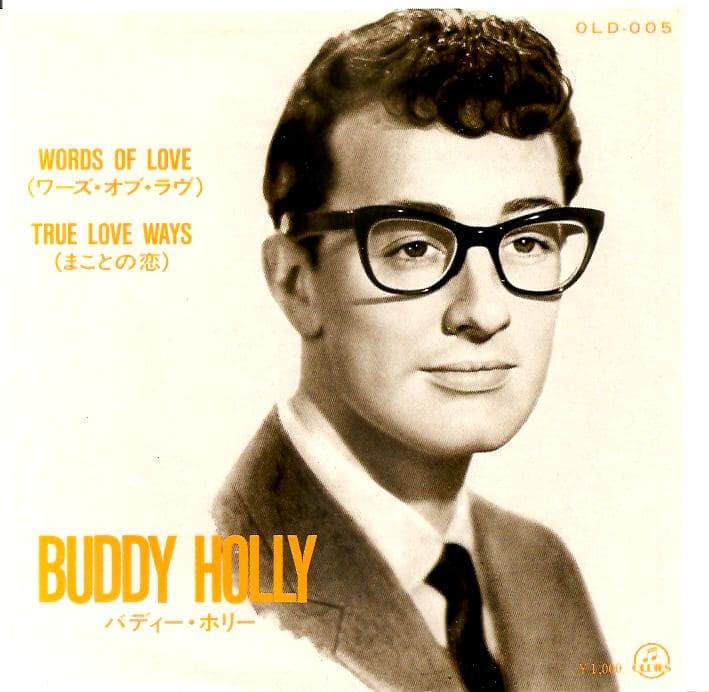
🎵 The Tender Whisper: An Anthem of Simple, Sincere Affection 🎸
There are songs that explode onto the charts, announcing themselves with a roar, and then there are those precious few that enter the collective memory with a quiet, persistent elegance. Buddy Holly‘s “Words of Love” belongs firmly in the latter category. Though the version recorded and released by the man himself in 1957 was not a chart-topping hit—it was issued as a single on the Coral label on June 20, 1957, with “Mailman, Bring Me No More Blues” as the B-side, and did not chart in the US—its enduring influence is incalculable, a whisper that became a legend. However, a cover released almost immediately by the Canadian doo-wop group The Diamonds did find success, peaking at Number 13 on the Billboard Hot 100 in July 1957. This little detail speaks volumes about Holly‘s genius, often appreciated more fully by his peers and later generations than by the initial record-buying public.
The true story of “Words of Love” lies not in its initial commercial performance, but in its revolutionary studio technique and its gentle, yet profound, sentiment. Recorded on April 8, 1957, at Norman Petty Recording Studios in Clovis, New Mexico, the track is a monument to Holly‘s innovative spirit. He employed a technique that was quite a novelty in rock and roll at the time: vocal overdubbing or double-tracking. By recording his voice twice and layering the tracks, he essentially harmonized with himself, creating that shimmering, distinctive sound that gives the song its almost ethereal quality. It was a simple trick, perhaps inspired by the smooth harmonies of acts like The Everly Brothers, but it was executed with a sparse perfection that only Holly could achieve, foreshadowing a level of studio craft that would become standard in the decades to follow.
Lyrically, “Words of Love” is disarmingly direct, a perfect example of how Holly could distill profound emotion into simple, unpretentious language. The meaning of the song is beautifully straightforward: a quiet plea for affirmation in a nascent relationship. The lines, “Hold me close and tell me how you feel / Tell me love is real / Words of love you whisper soft and true / Darling, I love you,” are not soaring declarations of eternal passion, but tender requests for reassurance. It’s the sound of a young man, earnest and a little vulnerable, needing to hear those essential, grounding words. For older readers who recall the sometimes agonizing dance of early romance, the song evokes that exquisite tension between hope and uncertainty. The sound is an intimate conversation, a shared moment of simple affection set to a light, jangling guitar rhythm that sounds almost like a heartbeat.
The real measure of its impact is found in its cover history, particularly by a certain Liverpudlian quartet. The Beatles, in their formative years, were deeply influenced by Buddy Holly, and they frequently performed his songs live, long before they became global superstars. In a beautiful homage, they included their own faithful version of “Words of Love” on their 1964 album, ‘Beatles for Sale’ (and ‘Beatles VI’ in the US). For many of us who grew up with the British Invasion, it was The Beatles‘ rendition—with John Lennon and Paul McCartney sharing the vocal harmonies—that introduced us to Holly‘s composition. Their cover, a deliberate nod to their hero, further solidified the song’s place in the rock and roll canon, making it clear that Holly was more than just a pioneer; he was the blueprint. Hearing it now, one can’t help but feel a warm surge of nostalgia, connecting the dots between the raw purity of the 1950s and the explosive creativity of the 1960s, all thanks to this two-minute masterpiece. It’s a song about the simplest, most essential thing—being told that you are loved—and it achieves a timelessness that few compositions ever manage.